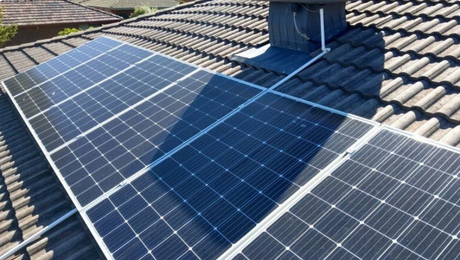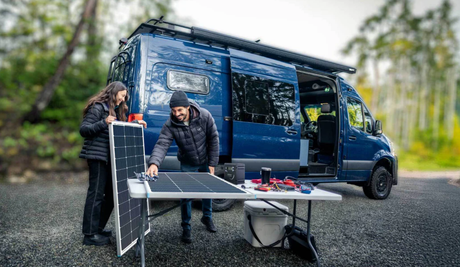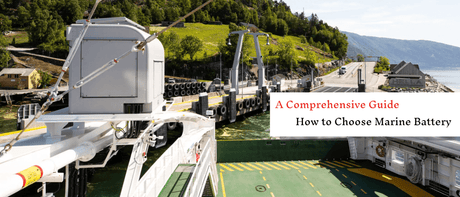It's one of the most common questions we hear from homeowners: "When is the best time to install solar panels?" Your logical guess might be the middle of summer when the sun is blazing. It seems to make perfect sense.
However, the truly answer is more nuanced. The absolute best time to install solar panels is not when the sun is strongest, but when a perfect storm of ideal weather, financial incentives, and preparation aligns. For the savvy homeowner and RVers, that golden window is unmistakably right now, in the autumn. In this tutorial, we'll look at why fall is undisputedly the best time for solar installation.
Install Solar Panels in Spring vs. Autumn
Most people will point to spring as the best time to go solar. On the surface, it seems logical, as you'll have your new panels ready to harness the full power of the summer sun. It sounds like the perfect plan.
However, spring is a busy season. Everyone has the same idea, leading to installer get booked up months in advance. You could find yourself stuck on a waiting list, delaying your project before it even begins.
As a result, the autumn is the best time to install solar panels. Once the summer rush is over, installation crews have more availability and the weather is still ideal for the job. This means you get faster, more flexible service without the long wait.
And for the RV owners out there, this timing is even more perfect. Autumn is the natural off-season for upgrades, allowing you to equip your rig with solar kits without losing any of those precious prime camping days.

Why Autumn is the Best Time to Install Solar Panels
The benefits of an autumn installation extend far beyond just easier scheduling. Here are the reasons why:
Ideal Installation Weather:
Autumn offers mild, dry, and comfortable conditions. Not only does it pleasant for installers to work in but also perfect for the initial setup and calibration of solar system. There's no extreme heat to stress the equipment or the crew, and no winter frost to delay the project.
Beat the Spring Rush:
Everyone thinks about solar in the spring. By installing in the fall, you avoid the long waitlists and scheduling nightmares, ensuring you get prompt service and more attention from your installer.
Be Ready for Winter:
A common myth is that solar panels don't work in winter. In fact, they are very effective in cold, sunny weather. Solar panels convert light, not heat, and can even be more efficient in cooler temperatures. This is the most compelling reason. Get your system operational before the winter storms and shorter days arrive. Your panels will immediately start offsetting high winter heating bills. And if you pair it with a home battery storage system, you'll have backup power during outages.
Autumn Sales:
Many companies (like Renogy!) offer exclusive autumn promotions and discounts to encourage installations during this off-peak season, saving you money!
Limited offer starts on Sep 22nd - Oct 4th :
- 6% off on purchases over 600 CAD
- 9% off on purchases over 1200 CAD
- 12% off on purchases over 2000 CAD
Are Solar Panels Effective in Winter?
This is a valid and crucial concern. The myth persists that solar panels are ineffective in winter. Let's debunk that right now.
The truth is, solar panels operate on light, not heat. In fact, the cooler temperatures of fall and winter can slightly increase their efficiency compared to scorching hot summer days. While it's true that shorter days and snow cover can reduce production, these are manageable factors.
Modern panels, such as the ShadowFlux solar panel, are designed to be extremely effective even in indirect light on cloudy and snowy days, thanks to anti-shading technology that significantly reduces energy loss.
Ready to Seize the Perfect Timing? Our Autumn Sale is Here
Now that you understand the undeniable strategic advantage of an autumn installation, the next step is clear. There has never been a better moment to lock in your energy independence.
To make your decision even easier, we are launching our exclusive Autumn Sale. For a limited time, when you choose to power your home with solar, you'll receive significant savings.
Here's how you save:
- Spend over C$600, get a 6% discount
- Spend over C$1200, get a 9% discount
- Spend over C$2000, get a massive 12% discount
This isn't just a discount, it's an investment that protects your home and locks in your savings. You're not just purchasing solar panels, you're gaining freedom from unpredictable energy bills and peace of mind knowing you can rely on your own power.
This special offer won't last forever, don’t miss out!
Final Thoughts
Finding the best time to install solar panels isn't about waiting for the sunniest day, it's about making a smart choice for your home and your RV.
Right now, autumn gives you the perfect setup: the best weather for installation, the best prices of the year, and the perfect timing to get ready for what's next. Don't just think about the future. Start building it today!
Frequently Asked Questions
How long does a solar installation take?
Most standard residential solar installations are completed remarkably quickly, typically within 1 to 3 business days. The exact timeline can vary based on system size and complexity, but our crews work efficiently to minimize disruption to your home.
Will I need to clean snow off my panels?
Usually, no. Solar panels are installed at an angle precisely so that snow can naturally slide off. Their dark surfaces also absorb heat, which helps melt light snow. In most cases, they are self-cleaning. After a heavy snowfall, you might choose to gently remove buildup, but it is rarely necessary for long.
What about shorter days in winter?
It's true that production is lower in winter due to fewer daylight hours. However, this is precisely why an autumn installation is so critical. It ensures your system is already operational and offsetting your usage during this period. The goal is annual net energy production, and your system will overproduce in the summer to credit your account for the winter months.

![When Is the Best Time to Install Solar Panels [Ultimate Guide]](http://ca.renogy.com/cdn/shop/articles/ZJ8VBgoGArXCv7KdDDzRUC-1200-80_e5cea14c-5504-4681-8c83-0d08d53769d2.jpg?v=1758087307&width=1600)







